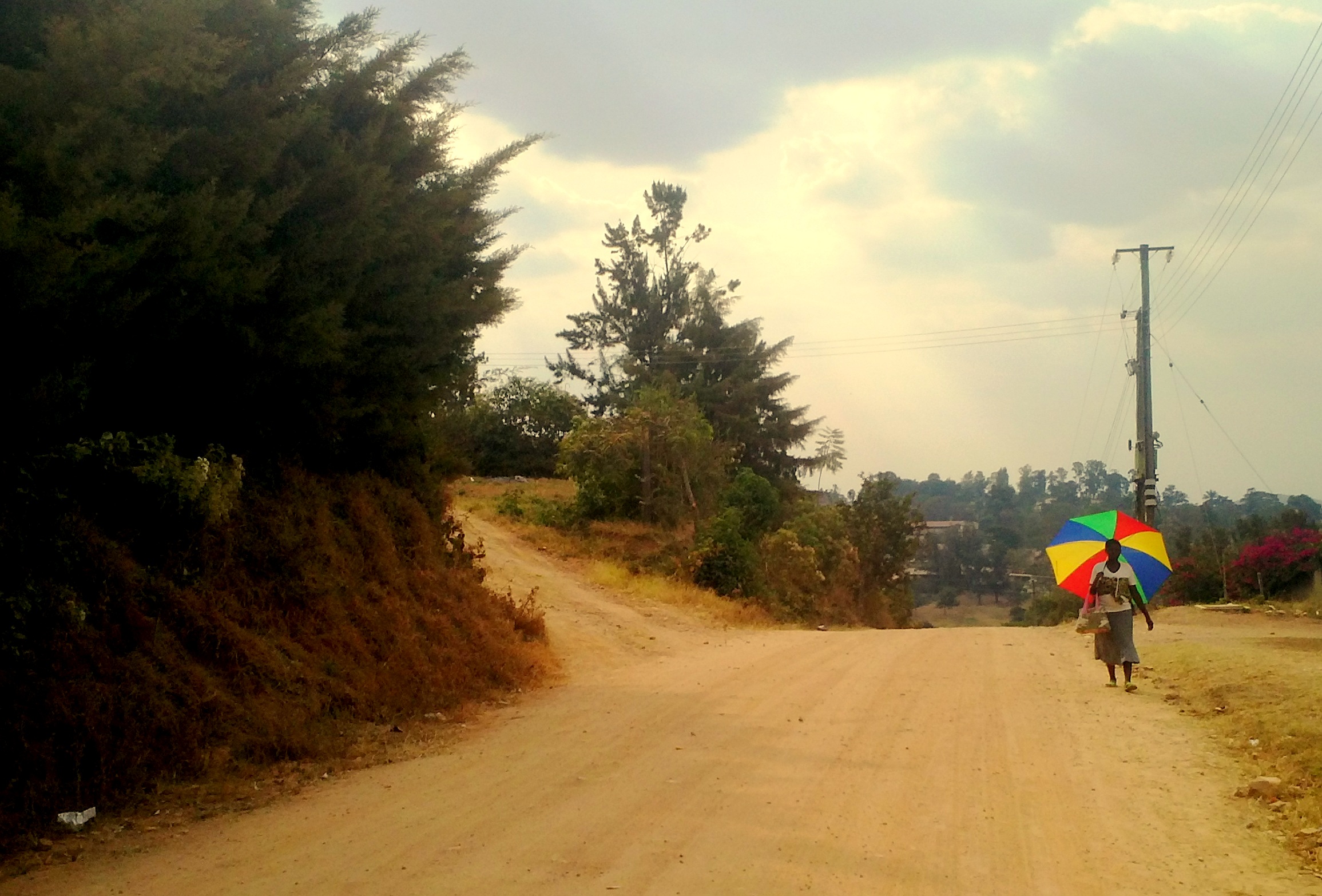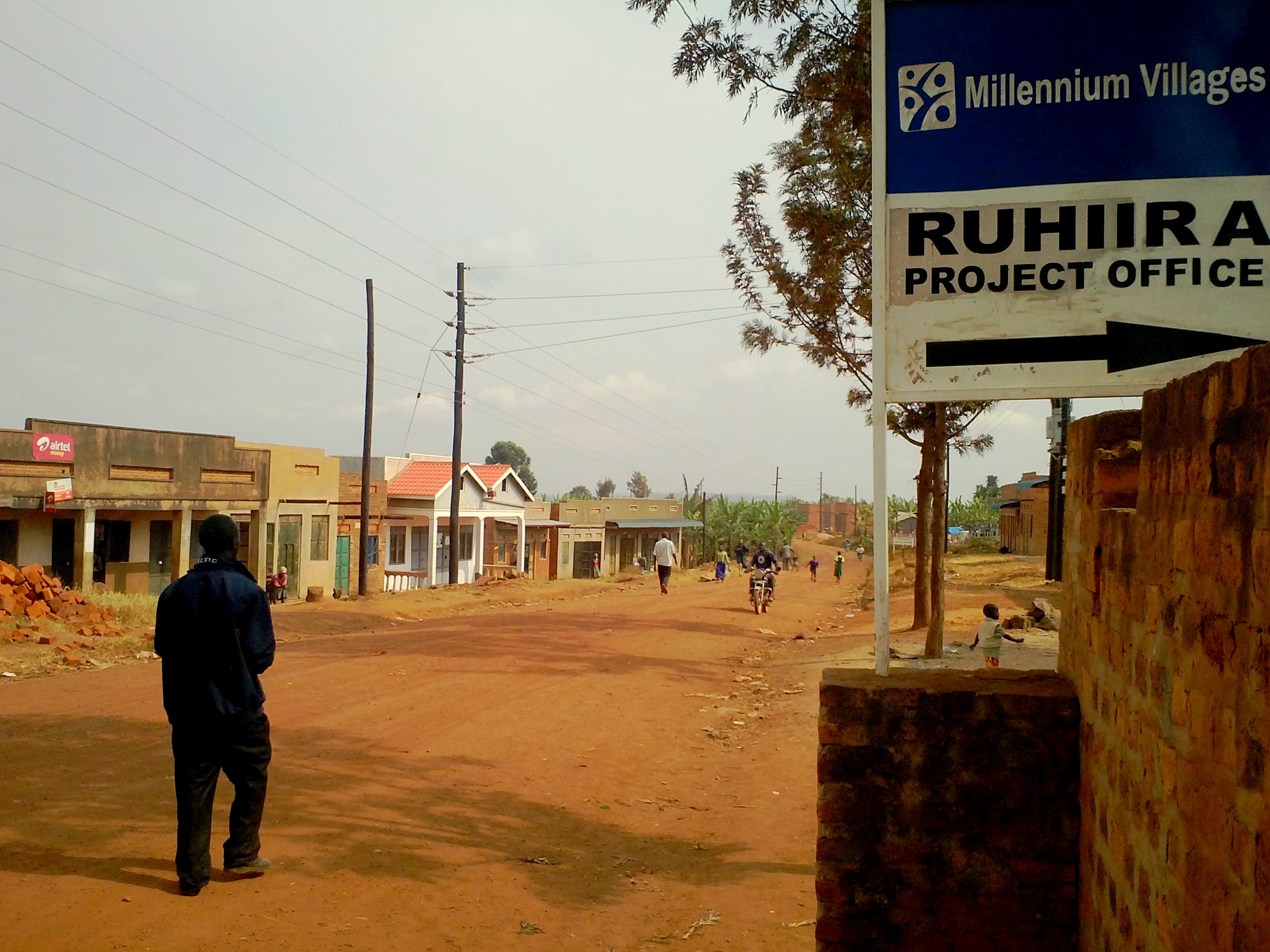Since I was a child, the perfect fluidity of the way sunlight spills like water across Spanish fields or the seductive flash of a bright pink gomesi dress in the rear-view mirror amid trails of dust convinced me that I live in a world entirely made of metaphor. A mutable world where precision and definition is futile, the way you can never quite outline a shivering star in the night sky.
I soon became fascinated by an equally beautiful but often misunderstood world, a world made of matter instead of metaphor. The paradox of an unimaginably breathtaking world driven entirely by numbers — formulaic, inexplicable, indivisible. I found my journal overflowing with moments not memorable for their inability to be described, but precisely because they were so absolutely predictable. The very algebraic foundation upon which the world is based became a constant in my life — an invariable pillar upon which even in the darkest moments of our fleeting lives provides a sense of solidarity and comfort.
As a passionate writer and scientist, I have come to understand the world as a conflicting duality. I find beauty in the exacting ways in which the splitting of tree branches resemble Lindenmayer system fractals, or the way almost all technology from wristwatches to the most advanced computers, at their core, are reduced to a genetic binary DNA of ones and zeros. The way nautilus shells grow according to a logarithmic fashion and the way cracks in my hands form interlocking isosceles triangles. The fall of the first leaf in winter or the gentle glide of a horsehairs bow to produce a magical sound, all captured, predicted and reproduced within the known confines of mathematics. Perhaps numbers, then, become an even more potent reflection of ourselves and our world than words or language can ever hope to achieve.
But, there exists a danger with such precision. Data and numbers create the very world we inhabit, and its powers are incomparable. They can create fortunes, catalyse revolutions, sway policy makers, realise impossibilities, punish apathy and act as microphones to those without a voice. Yet, they similarly have the power to destroy. Data can easily be the most destructive, disappointing force when mishandled or manipulated, reflecting a falsehood of reality.
My short time at the controversial Millennium Villages Project (MVP) in Ruhiira, Uganda, has reinforced this worldview and emboldened its importance when contextualizing global health issues. Criticisms, many of which have been damaging to the mission of MVP, revolve around several well-repeated motifs: improvements would have happened in the community despite MVP’s intervention, a failure to enact gold-standard impact evaluations to monitor performance, and improper evaluation of long-term cost-effectiveness and sustainability.
Most arguments against MVP are well-founded, and the fault lies largely on MVPs use and analysis of data. Most policy makers and critics alike never have the chance to visit our Ruhiira Millennium Villages; to experience what I am able to witness on a daily basis. The once unimaginable scenes of women running and operating their own successful jewelry and fashion business at Kahachico, the women’s cooperative in the rural Kabuyanda parish. The laughter of women at the once non-existent health centers like Ntungu HC II in the most remote mountain ridge communities as they receive essential antenatal care, or the squeals of young girls who learn they have been given a full scholarship to attend primary and secondary education. With nearly 100 percent of women of the in-cluster communities knowing and understanding the importance of family planning and another 50 percent of those women choosing to be on family planning methods, many women now have the agency and power to choose their own reproductive lifestyles. Newly planted woodlands line once barren and deserted dust fields and a web of maintained roads now link trading centers, farms, and homes. The focused eyes of fully immunized children as they learn to operate desktop computers at school and an almost ceaseless queue forms at SACCO, the local Ruhiira bank, as mothers and fathers choose to save money earned from high yield crops.
Instead, mismanaged data systems and analytics paint an entirely different portrait of Ruhiira MVP, one of inefficiency and wasted foreign investment. My job as the Health Systems Quality Improvement Coordinator of data and staff has given me the opportunity to link my two worldviews into one clear portrait of reality; to develop the highest quality data collection, management and analysis of best practices such that the cold, scientific world of data becomes the one of metaphor and beauty I witness each and every day.
The criticisms of the Millennium Villages Project will not go away – nor will I ever argue they should. Most are well-founded and healthy for this initiative to become everything it has promised to become.
As for me, here I remain, laptop in hand, refusing to see the spreadsheet after spreadsheet of data points as merely incomprehensible strings of numbers and letters; rather, I see them as the voices of families in the Ruhiira communities trapped, just waiting for their stories to be told.


